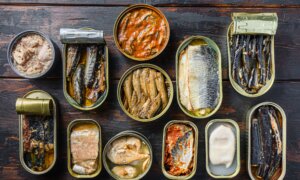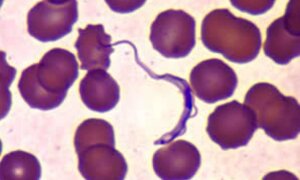A Mediterranean-style diet, based on the traditional eating habits of people living in the Mediterranean Basin, is rich in fruits and vegetables, whole grains, and healthy fats. It has been deemed one of the healthiest ways to eat in the world—a key to improving overall health and staving off chronic conditions.
Past research has shown that following a Mediterranean diet can reduce pain and inflammation, boost mood, fight osteoporosis, improve cardiovascular health, and lower the risk of dementia.
During the COVID-19 pandemic, an editorial in the journal Metabolism in 2020 called for “more in vivo studies and well-designed clinical trials to explore the potentially beneficial effects of the Mediterranean diet [...] in preventing COVID-19 infection and/or improving disease-related outcomes.”
Better health and better eating habits led to better outcomes from COVID-19—but could following a Mediterranean diet help reduce the risk of contracting it? Could this diet help ease the symptoms and severity of COVID-19 once someone had it?
A research team in Indonesia set out to answer these questions in a systematic review published Aug. 21 in PLOS ONE. Its findings add to mounting evidence that the Mediterranean diet, shown to boost health in many beneficial ways, can help to ward off communicable diseases such as COVID-19 as well as non-communicable chronic conditions. However, the research also showed that people who follow a Mediterranean diet might not experience less severe symptoms of COVID-19 once they have contracted it.
Study Findings
The researchers at Universitas Sumatera Utara, Medan, in North Sumatera, Indonesia, analyzed six observational studies that involved 55,489 subjects in five countries who responded to questionnaires assessing how closely they followed a Mediterranean diet.
Of the six studies, four showed a significant correlation between increased adherence to the Mediterranean diet and reduced COVID-19 risk. Two studies showed a non-significant association.
The study subjects reported how often they ate certain foods. Higher intake of olive oil and fruits and nuts, combined with less red meat and low or moderate alcohol consumption, were found to “lower risk against COVID-19,” the researchers reported.
Of the four studies that showed an association between adherence to a Mediterranean diet and the odds of developing COVID-19 symptoms, only one found that stricter adherence correlated to fewer symptoms. The remaining three studies reported a non-significant association.
Three of the six studies looked at the severity of COVID-19 symptoms among 52,670 subjects. One study found that individuals with higher adherence to a Mediterranean diet had a reduced likelihood of developing severe COVID-19. However, two studies were inconclusive on this data point.
The researchers point to an American study showing that in six countries, people following plant-based or pescatarian [includes fish and seafood] diets had lower odds of developing moderate-to-severe COVID-19 in the earlier days of the pandemic (2020).
Participants in this study who reported following a plant-based diet had 73 percent lower odds of developing moderate-to-severe COVID-19, while those on plant-based/pescatarian diets had 59 percent lower odds compared to subjects who did not follow these diets.
Reducing Inflammation Is Key
Although the results of this new study were somewhat mixed, the consensus is clear that inflammation is a key driver in the development and severity of COVID-19, according to the researchers.
Adherence to the Mediterranean diet has been reported to reduce “overall systemic inflammatory status,” they wrote and also has antiviral effects. Thus the Mediterranean diet “has been reported to benefit those with various disorders associated with persistent low-grade inflammation,” they noted, referring to a study on the protective effect of the Mediterranean diet against chronic, low-grade inflammatory diseases including “cancer, diabetes, obesity, atherosclerosis, metabolic syndrome and cognition disorders.”
Sophie Schoen, a registered licensed dietitian with Cleveland Nutrition in Cleveland, Ohio, told The Epoch Times that the Mediterranean diet helps reduce the risk of contracting COVID-19 due to what it does not include. “Sugar, sodium, saturated fat, and refined carbohydrates, along with large amounts of alcohol, all contribute to inflammation in the body, metabolic diseases, and a slowed immune response,” she said. The Mediterranean diet limits or eliminates these types of foods.
“Any diet that significantly reduces or eliminates these foods will have a similar effect in improving immune function, supporting healthy blood sugar and blood pressure, maintaining a healthy weight and a healthy gut microbiome, and reducing risk of metabolic syndrome,” said Schoen.
Schoen told The Epoch Times that while she takes a personalized approach with her patients, her nutritional plans align with the Mediterranean diet in recommending what patients eat:
- Very few highly processed and refined foods (white flours, sugar, artificial sweeteners, and refined fats)
- Whole grains such as brown rice, quinoa, bulgur, and oats
- Beans and legumes (one serving a day)
- Healthy fats that include omega 3s and 6s such as walnuts, flax seeds, and certain types of fish
- Little or no red meat
- Lean meats such as chicken
- Healthy fish such as wild-caught salmon
- Leafy greens (at least once a day) and other vegetables
- Fruits (two or three servings a day)
- Minimal alcohol
“We have witnessed countless patients improve their health, lose weight, reverse cardiovascular disease and even reverse type 2 diabetes by following a more whole food, plant-focused diet,” she said.














